|
Once again, our group of higher education associations is jointly surveying its members/member institutions to gather data comparing this fall’s international student enrollments with last fall’s. The partner organizations are: American Association of Collegiate Registrars and Admissions Officers (AACRAO), American Association of Community Colleges (AACC), American Association of State Colleges and Universities (AASCU), American Council on Education (ACE), Association of Public and Land-grant Universities (APLU), Council of Graduate Schools (CGS), Institute of International Education (IIE), and NAFSA: Association of International Educators.
The purpose of this survey is to obtain quick and early feedback on enrollment trends so far this academic year (starting in Fall 2015). By sharing this information (in aggregate form) with the international education community and the media, we hope to develop a wider understanding among the press, the general public, and policy makers at state and national levels, about how higher education institutions continue to be affected by the various factors which impact international enrollments.
If you do not yet have final fall registration figures, we ask that you provide your best early estimates. All institutional-level responses will be anonymous and only aggregate numbers will be shared. We ask for your contact information only to insure that no more than one reply is received per institution, and to facilitate follow up if there are any questions.
If you are not the best contact for this survey, please forward it to another colleague on your campus who may be able to complete it.
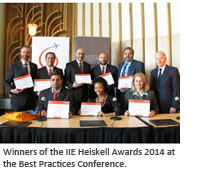 |
|
The Institute of International Education (IIE) is delighted to invite you to nominate your program for the 2016 Andrew Heiskell Awards for Innovation in International Education. IIE created these awards to honor outstanding initiatives in international higher education by IIENetwork member universities and colleges. IIE's Heiskell Awards showcase the most innovative and successful models for internationalization of campuses, study abroad, and international exchange partnerships in practice today. There are four award categories for 2016: Internationalizing the Campus, Study Abroad, International Partnerships, and Internationalizing the HBCU or Community College. |
Universities in Africa and African-born academics in the United States and Canada can now apply for funding to take part in joint projects as part of the Carnegie African Diaspora Fellowship Program (CADFP). Carnegie Corporation of New York has announced a renewal grant to IIE that aims to support 140 collaborative projects in 2016 and 2017, building on the success of the first two years of the program. Project requests from universities and applications from scholars are due by December 8, 2015, and projects can begin as early as May 2016.
The CADFP Advisory Council seeks applications for innovative projects, and specifically encourages projects that involve collaboration among multiple institutions or from groups of faculty who are addressing related topics. As a way of solidifying links that have already been developed between host institutions and visiting scholars, the council also plans to award some Fellowships to faculty members who are alumni from the first two years of the program.
The State Of Arab Research: A Conversation With Sari Hanafi
Two sociologists have spent five years investigating research in the Middle East and North Africa and its collaboration with other regions. Sari Hanafi explains their findings in an interview. — Al-Fanar Media
The New Access Challenge Is for Refugees, Says UNHCR
Refugees from countries in the Middle East "are well educated and want access to tertiary education," according to Zarina Azmin with the United Nations High Commission for Refugees’ education unit in Malaysia. The country has the second-highest number of refugees globally in an urban setting. — University World News
How Can Emerging Economies Climb the Innovation Rankings?
Although emerging economies are making progress, particularly China and Malaysia, considerable challenges remain in education quality and research, the enabling environment they offer, and links between actors within innovation systems. — University World News
Russia Moving to Expand International Student Recruitment
The Russian Foreign Ministry has supported the formation of a new association for foreign graduates of Russian universities, and the number of scholarships for foreign students will also increase in 2016. — ICEF Monitor
How Master’s Students Choose Institutions: Research on International Student Segmentation
World Education Services (WES) released a new report on the relative importance international master’s students place on school reputation, career prospects, location, and cost when applying to U.S. colleges and universities. — WES World Education News & Reviews
|
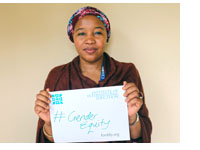 |
|
Although women increasingly outpace men in higher education enrollments, in many parts of the developing world they continue to be underrepresented. Even in countries where they’ve achieved parity with men, women and girls face numerous issues of inequity and marginalization, from domestic violence to a lack of female leadership in government. Providing higher education access to women—particularly those who are working to address injustice at the community level—is an important step towards advancing gender equity more broadly.
This Ford Foundation International Fellowships Program (IFP) Issue Brief explores ways in which IFP has helped to promote social justice for women and girls worldwide. In addition to looking at the approach employed by IFP and the stories the approach the program took in providing educational access and opportunity to women, this brief looks at two stories of alumnae who have not only benefitted from the fellowship themselves, but who are working to advance gender equity in their home communities.
IFP came to an end on September 30, 2013. Over 4,300 fellows from 22 countries have participated in the program, with the vast majority returning home to apply their newfound skills and knowledge.
Since its founding in 2001, IFP maintained global headquarters in New York City, where it ran program operations and administered grants through the Institute of International Education (IIE). The Institute has been honored to provide a home for IFP, and is now committed to studying the legacy of the program as seen through the lives of its alumni.
|
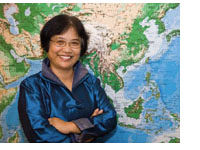 |
|
IIENetworker magazine invites submissions for publication in its upcoming Spring 2016 issue. The theme of the spring issue of IIENetworker will be: "Faculty-Driven Internationalization." This issue will examine innovative ways that colleges, universities, governments, and other organizations encourage and support faculty engagement in internationalization. Proposed articles should focus on mechanisms such as: grants and funding opportunities, tenure policies, administrative and support structures, strategic planning, government policies that support cross-border collaboration, host institution policies to attract international faculty, and policies and programs for retaining faculty after an international experience, e.g. re-entry programs.
|
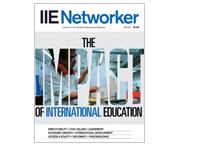 |
|
In the recent IIENetworker magazine, UN Senior Advisor Colleen Thouez discusses the growing presence of higher education in the international development agenda. "The perception held by policymakers and other vested stakeholders on the impact of education has shifted fundamentally," writes Thouez. "There is a rowing opportunity for the world of international educators to engage in a broader debate about how internationalize education can support global development objectives."
|
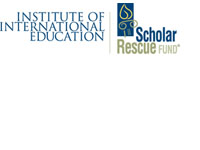 |
|
IIE's Scholar Rescue Fund announces its next round of applications from scholars facing threats to their lives or academic work. Fellowships support temporary academic positions at colleges, universities, and other research institutions anywhere in the world where the scholars can continue their academic work in safety. Professors, researchers, and public intellectuals from any country, field, or discipline may apply. Please refer eligible candidates and forward this announcement to any academic colleagues who may be interested.
|
This event, organized by Observatory on Borderless Higher Education (OBHE), will take on some of the opportunities and complexities of higher education in the 21st century. Topics include: Pathways and Progression, Transnational Education (TNE), Multinational Universities, and Online Learning. This event is recommended for institutions and policymakers seeking new insights into the promise and pitfalls of the new higher education landscape, from UK and international perspectives.
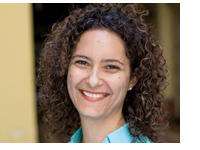 |
|
Wagaye Johannes, IIE Generation Study Abroad Project Director, gives highlights of IIE’s inaugural summit, which took place on October 1–2 in Washington, DC. "Partners shared ‘commitments that work,’ such as developing innovative fee models, building endowments, working with faculty to map curricula, and providing passports to all freshman," writes Johannes. "U.S. government agencies and foreign governments also discussed programming options that will diversify study abroad destinations and attract new types of students."
|
The Institute of International Education, on behalf of the U.S. Department of State’s Bureau of Educational and Cultural Affairs’ EducationUSA Advising Network, invites accredited U.S. post-secondary educational institutions (non-profit and for-profit), U.S. higher education associations, university systems, consortia, and qualified entities that meet provisions in IRS section 26 USC 501(c)(3) to submit proposals to be a Partner Organization for the third round of EducationUSA Leadership Institutes. Partner Organizations will develop and manage one of three EducationUSA Leadership Institutes for approximately15 mid- to upper-level foreign college or university administrators, Ministry of Education or other government officials, or other qualified participants from select countries and world regions. The Institutes consist of intensive, short-term academic programs that provide participants with the opportunity to deepen their understanding of U.S. higher education, develop the tools necessary to build capacity within their own systems, and engage with the U.S. higher education sector in effective, sustained ways.
Applicants are invited to submit proposals to host one of the following Institutes. Each proposed Institute must address only one of the following topics:
- U.S. Graduate Education: Organization and Internationalization
- U.S. Higher Education and Industry/Private Sector Linkages
- Campus Internationalization: Structures that Support Student Mobility
You may also register for an informational webinar:
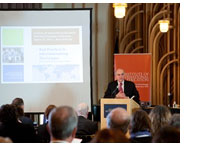 |
|
March 11, 2016, at University of California, Davis | Read More
The Institute of International Education (IIE) encourages you to save the date for the Annual IIE Best Practices Conference. This event will cover many exciting keynote, plenary, and session themes, and will feature high-level experts, including presidents, provosts, and international education administrators from institutions around the world. In addition, a special awards portion of the conference will honor the winners of the 2016 IIE Andrew Heiskell Awards for Innovation in International Education. We also invite you to attend the optional pre-conference roundtable discussions and the networking reception on March 10, 2016.
Online registration will open in November. IIENetwork member campuses will receive a priority discount on conference registration. Various sponsorship opportunities are available; for more information, contact Jeff Bunkin. |
|
| |
|











